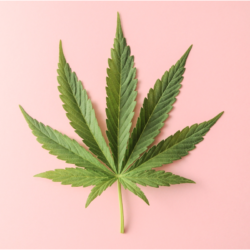Obesity is a chronic medical condition that affects millions of people worldwide, leading to numerous health complications and a reduced quality of life. The search for effective solutions to control this problem is therefore crucial. Among the new treatment options attracting interest are Cannabidiol (CBD) and Ozempic, two substances with very different mechanisms of action. This article explores the advantages and disadvantages of each to help you choose the best option for healthy weight loss.
What causes obesity?
The causes of obesity are complex and multifactorial. Firstly, genetic factors play a crucial role, as some people are predisposed to accumulate weight more easily than others. Secondly, behavioural factors, such as eating habits and levels of physical activity, play a decisive role. Excessive calorie consumption, especially from foods rich in fats and sugars, combined with a lack of exercise, can lead to a gradual accumulation of body fat.
Other factors include medical conditions, such as thyroid disorders, polycystic ovary syndrome (PCOS), and certain endocrine conditions that disrupt normal metabolism. In addition, medications such as corticosteroids and certain antipsychotics can promote weight gain. Finally, psychological factors such as stress and anxiety can also contribute to weight gain, often through compulsive eating behaviours or ’emotional eating’.
What are the health consequences of obesity?
The health consequences of obesity are wide-ranging and can affect almost every system in the body. Cardiovascular diseases, such as high blood pressure, coronary heart disease and stroke, are much more common in obese people. Obesity also increases the risk of type 2 diabetes by causing insulin resistance.
Obesity is also associated with an increased risk of certain types of cancer, such as breast, endometrial and colon cancer. Musculoskeletal disorders, particularly osteoarthritis, are also more common, due to the extra pressure exerted on joints by excess weight.
Psychologically, obesity can lead to mental health problems such as depression and anxiety, often as a result of social stigma and body dissatisfaction. Respiratory problems, such as sleep apnoea and asthma, are also exacerbated by obesity.
Is Cannabidiol (CBD) effective for losing weight?
Cannabidiol, more commonly known as CBD, is an active compound derived from the cannabis plant, Cannabis sativa. Unlike THC, CBD has no psychoactive properties, making it attractive for a variety of therapeutic uses, including weight management and metabolism.
What is CBD?
CBD is one of the many cannabinoids present in the cannabis plant. It is extracted mainly from hemp, a variety of Cannabis sativa that contains minimal levels of THC. Because of its non-psychoactive effects, CBD is legally available in many countries to treat conditions such as anxiety, chronic pain and sleep disorders, and its potential in the treatment of obesity is currently being explored by the scientific community.
What are the effects of CBD on weight loss in obesity?
Recent studies have begun to reveal CBD’s potential in weight management. According to the article “Cannabis sativa as a Treatment for Obesity: From Anti-Inflammatory Indirect Support to a Promising Metabolic Re-Establishment Target”, CBD could play a beneficial role by modulating inflammatory reactions that are often exacerbated in obese people. This modulation contributes to better regulation of lipid and carbohydrate metabolism, which may promote weight loss.
On the other hand, research entitled “Cannabidiol improves muscular lipid profile by affecting the expression of fatty acid transporters and inhibiting de novo lipogenesis” suggests that CBD influences the muscular lipid profile by modifying the expression of fatty acid transporters and inhibiting de novo lipogenesis. This mechanism helps to reduce the formation of new fat cells and improves the metabolism of existing fats, which may help to prevent the accumulation of body fat and promote a healthy body weight.
Impact of CBD on appetite and body weight
The potential role of cannabidiol (CBD) in the management of appetite and body weight is attracting growing interest in the medical and scientific community. A recent systematic review entitled “Effects of Cannabidiol on Appetite and Body Weight: A Systematic Review” examined the available data to determine the effects of CBD on these two crucial factors in the management of obesity.
Regulation of appetite by CBD
This study highlights the complex role of CBD in modulating appetite. Unlike certain cannabinoids such as THC, which are known to stimulate the appetite, CBD could have a moderating effect. Although the exact mechanisms have yet to be fully elucidated, preliminary results suggest that CBD could help to reduce appetite in certain individuals. This property is particularly interesting for the treatment of obesity, where reducing calorie intake is essential.
What are the effects of Cannabidiol on weight?
The study also reveals that CBD may influence body weight by indirect mechanisms, in particular by improving lipid metabolism and reducing inflammation, which may help to prevent the accumulation of body fat. The results of the analyses included in the review suggest a trend towards weight stabilisation or a slight reduction in subjects treated with CBD, although the data are still insufficient to draw any definitive conclusions.
Advantages and limitations of Cannabidiol for weight loss
The benefits of CBD in the context of obesity include its ability to reduce inflammation and regulate lipid metabolism, which can help control body weight. In addition, its safety profile is favourable, with few serious side effects reported, making CBD a potentially safe option for people seeking natural alternatives to traditional drug therapy.
However, the limitations of using CBD for weight management also need to be recognised. Research is still in its infancy, and many studies are needed to confirm these effects and to fully understand CBD’s mechanisms of action. What’s more, the quality and concentration of CBD can vary considerably between products, which can affect its effectiveness and safety. It is therefore crucial to consult a healthcare professional before starting a CBD-based treatment for obesity management.
Ozempic for the treatment of obesity
Ozempic, whose active ingredient is semaglutide, was originally approved for the treatment of type 2 diabetes. However, due to its significant impact on weight reduction, it is increasingly used in the management of obesity.
What is Ozempic?
Ozempic is an analogue of glucagon-like peptide-1 (GLP-1), a hormone that plays a crucial role in regulating appetite and food intake. Administered by subcutaneous injection, it is prescribed to improve glycaemic control in adults suffering from type 2 diabetes, but its use has been extended to the field of obesity because of its beneficial effects on weight loss.
Mechanism of action of semaglutide
Ozempic’s mechanism of action is based on mimicking the effect of natural GLP-1, which is normally secreted in response to the ingestion of food. This hormone increases insulin secretion, decreases glucagon secretion when blood glucose levels are high, and slows gastric emptying. The result is a prolonged feeling of satiety, which helps to reduce food intake and, consequently, body weight.
Effectiveness of semaglutide in weight management
The efficacy of Ozempic in weight management in obese or overweight people has been demonstrated in several clinical studies. Patients treated with Ozempic often showed significant weight loss compared to those treated with placebo or other glucose-lowering drugs. This weight loss is due to the reduction in appetite and increase in satiety brought about by the drug, making it easier to reduce calorie consumption.
Is Ozempic harmful to health?
Although Ozempic is generally well tolerated by the majority of patients, it is associated with a number of potential side effects that require careful monitoring by a healthcare professional. Gastrointestinal disorders are the most frequently reported, including nausea, vomiting, diarrhoea and constipation. These symptoms are often temporary and tend to diminish over time as the body adapts to the treatment.
Other gastrointestinal side effects include abdominal pain and flatulence, which can be uncomfortable and interfere with the patient’s daily activities. A serious side effect, although rare, is pancreatitis. Patients should be made aware of the symptoms of pancreatitis, which include severe and persistent pain in the abdomen that may radiate to the back.
Ozempic may also cause changes in vision, such as blurred vision or decreased visual acuity. These effects may be the result of changes in blood glucose levels and require ophthalmological consultation if symptoms persist or worsen.
Injection site reactions, such as redness, itching, or pain, are also possible and although usually minor, may require medical attention if they do not resolve on their own or worsen.
Other less common but serious side effects include hypoglycaemia (low blood sugar), especially when Ozempic is used in combination with other medicines that lower blood sugar. Symptoms of hypoglycaemia include trembling, excessive sweating, confusion, palpitations or even loss of consciousness.
There is also a potential risk of thyroiditis and medullary thyroid cancer. Although rare, this risk requires extra vigilance, especially in patients with a family history of thyroid disease.
Because of these potential side effects, it is crucial that the use of Ozempic is accompanied by regular monitoring by a healthcare professional. This monitoring helps to ensure that the treatment remains safe and effective for the patient, and to make any necessary adjustments according to individual response to treatment and the possible appearance of undesirable effects.
Comparison between CBD and Ozempic
The choice between Cannabidiol (CBD) and Ozempic for weight management involves considering several aspects, including the efficacy, safety and accessibility of these treatments. While Ozempic is primarily prescribed for type 2 diabetes with an additional indication for weight management in obese patients, CBD offers a natural alternative with a variety of potential applications well beyond simple weight management.
Comparative efficacy
CBD, as a non-psychoactive compound derived from cannabis, is being studied for its beneficial effects on metabolism and appetite. Although studies are still ongoing, CBD is recognised for its potential to moderate appetite and promote a healthier lipid profile, which may help with long-term weight management. In comparison, Ozempic works by stimulating insulin and suppressing appetite via gastric hormones, which can lead to rapid weight loss.
However, Ozempic has been associated with muscle wasting in some patients, adversely affecting metabolism and overall health. This loss of muscle mass can reduce basal metabolism, making it more difficult to maintain weight loss over the long term and potentially compromising physical recovery.
Safety profiles
The safety profile of CBD is exceptionally favourable, especially compared to many pharmacological drugs. It is not only non-addictive but also lacks the psychoactive effects associated with other components of cannabis, such as THC. What’s more, CBD has few known side effects, making it safe for long-term use in a wide range of patients.
On the other hand, although Ozempic is a powerful drug for rapidly reducing weight and controlling diabetes, it can cause significant side effects such as gastrointestinal disorders, risks of pancreatitis and potential muscle wasting. These effects require rigorous medical supervision.
Accessibility and costs
CBD is widely accessible, available from many online pharmacies. It comes in a variety of forms, such as oils, capsules, gums and creams, offering users flexibility in the method of administration that best suits their lifestyle. What’s more, the cost of CBD is generally attractive, especially when compared to prescription drugs such as Ozempic. This makes CBD accessible to a wider range of people, without the need for specific medical insurance cover.
Sources
- Sci Rep. 2023; Cannabidiol improves muscular lipid profile by affecting the expression of fatty acid transporters and inhibiting de novo lipogenesis
- Int J Mol Sci. 2022 May 17;The Metabolic Efficacy of a Cannabidiolic Acid (CBDA) Derivative in Treating Diet- and Genetic-Induced Obesity
- Clin Drug Investig. 2022; Effects of Cannabidiol on Appetite and Body Weight: A Systematic Review
- Cannabis Cannabinoid Res. April 2022; Cannabis sativa as a Treatment for Obesity: From Anti-Inflammatory Indirect Support to a Promising Metabolic Re-Establishment Target





